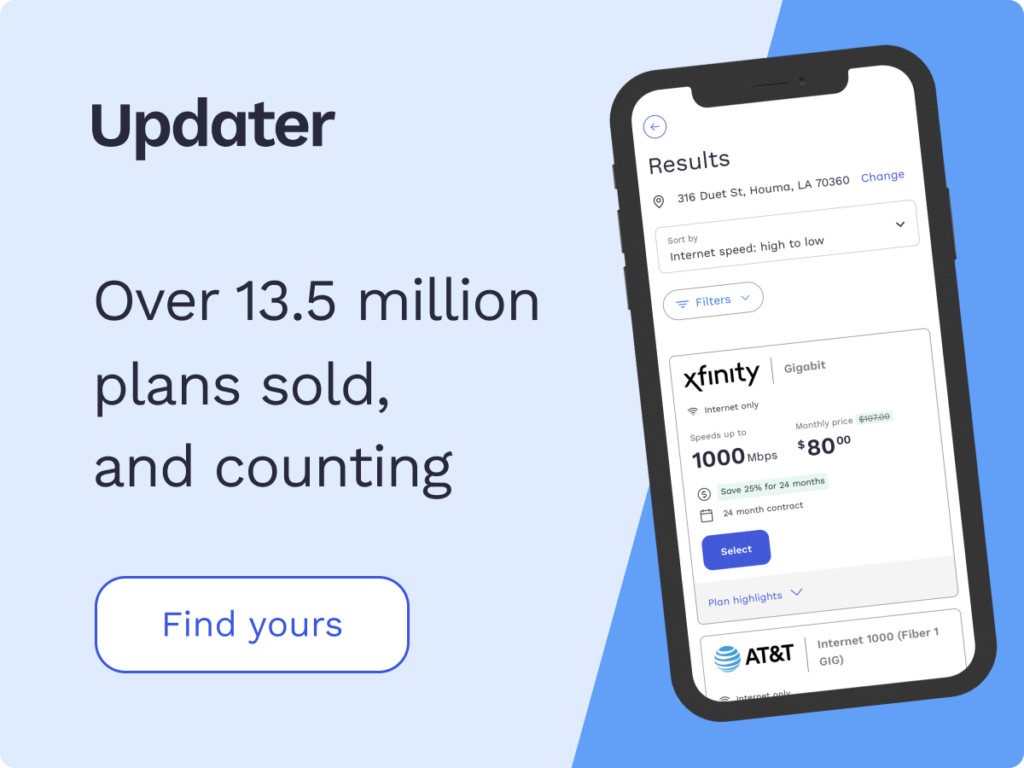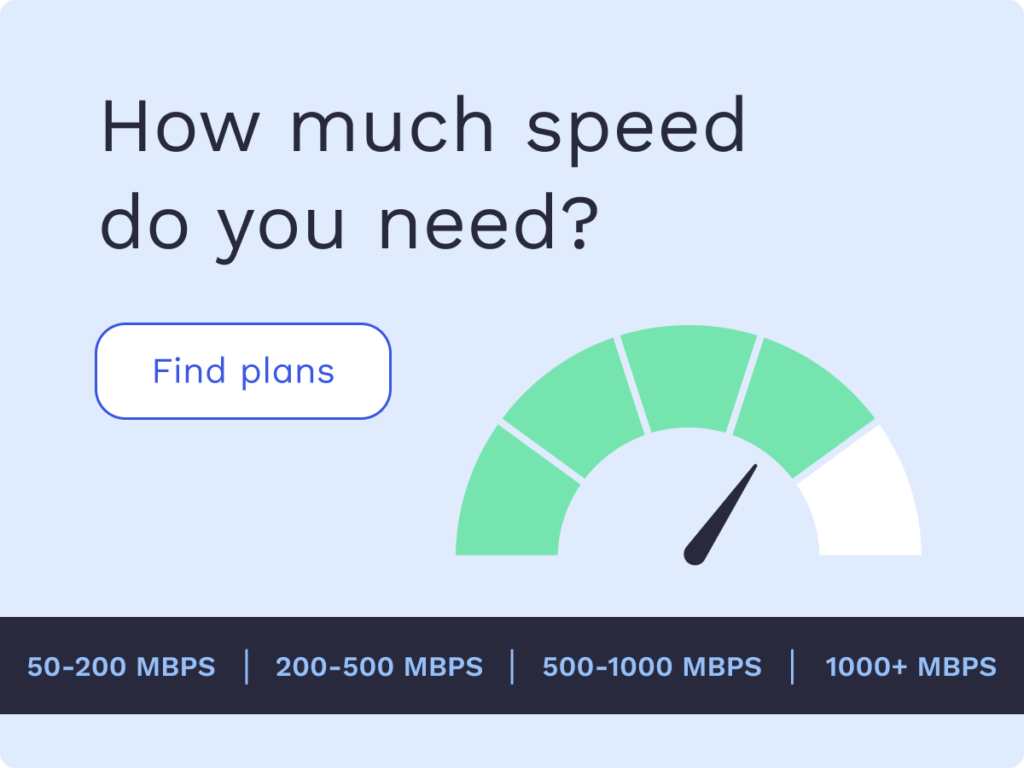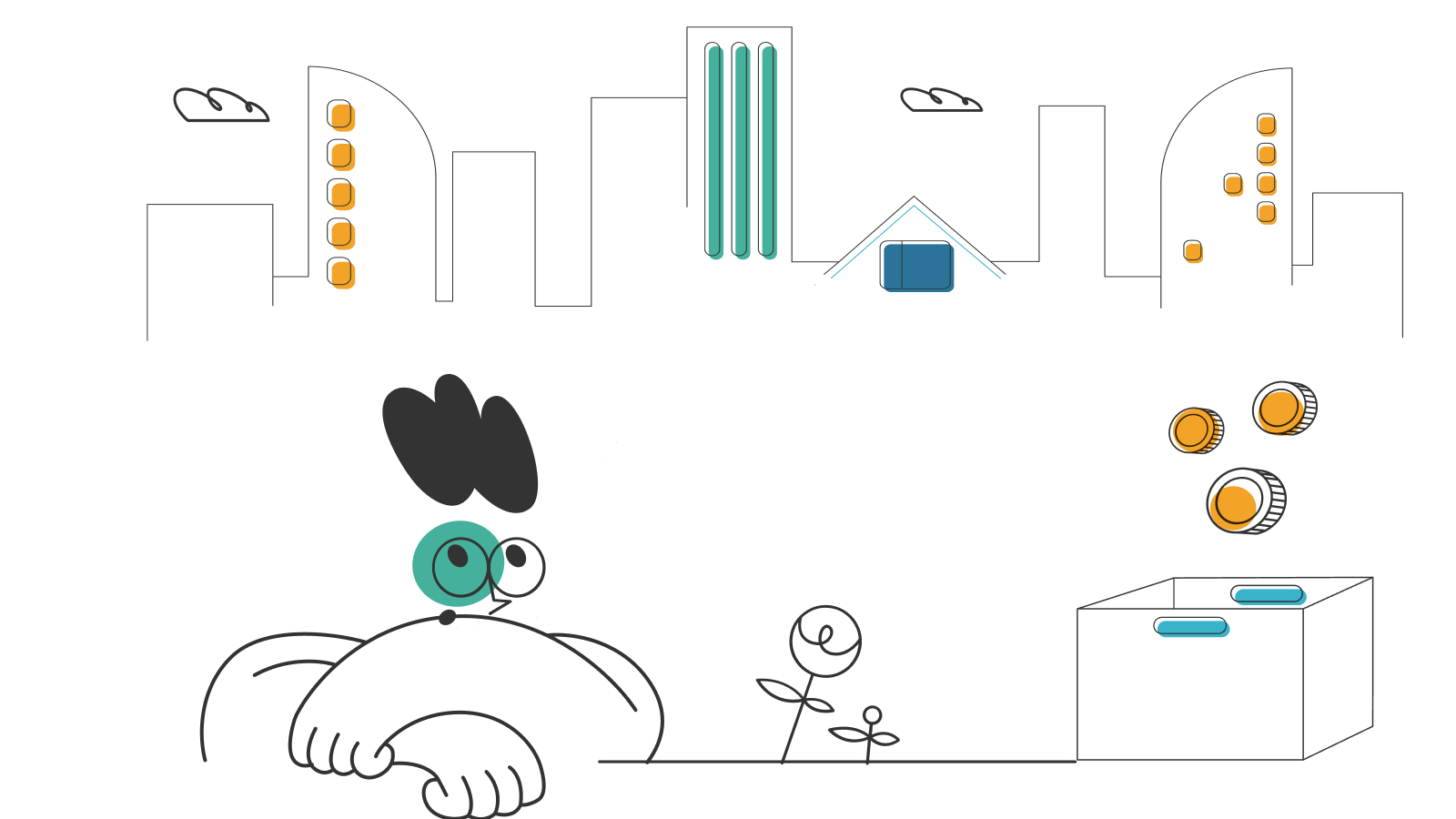How to Get Internet Without a Phone or Cable Line

Gone are the days when you need either a landline phone or cable connection in order to access the internet. In fact, many high-speed internet connections are now delivered wirelessly.
Thanks to a widespread 4G LTE network, and a growing 5G network, you can access the internet via wireless compatible devices. Other options include fixed wireless in rural locations or satellite service anywhere there is a clear view of the southern sky.
Interested in learning more? We’ve gathered the details on each option to help you better understand how you can access the internet without a phone or cable line.
Wireless internet options
There are a variety of wireless internet options available no matter where you live so that you do not have to depend on traditional phone or cable lines to access the internet.
4G LTE internet
4G LTE internet stands for fourth-generation internet and is the successor to 3G. The difference between 3G and 4G internet is speed. While 3G speeds peak around 21 megabits per second (Mbps), 4G can reach speeds up to 300Mbps— which is generally more than enough speed to serve the typical US household. While 4G LTE is still a widely available option (covering about 98% of the US) provided by internet service providers (ISPs) like Verizon and T-Mobile, it is slowly being phased out and replaced by 5G.
4G LTE internet pros
- Does not require a phone or cable line to access
- Still widely available through companies like Verizon and T-Mobile
- Accessible on the go with 4G LTE compatible devices
4G LTE internet cons
- Speeds top out at 300Mbps which might not be enough to support a household with heavy internet usage. That means households with multiple gamers and multiple devices streaming at once may not get the speed they need with 4G LTE.
- In the process of being phased out in favor of 5G
5G internet
5G internet stands for fifth-generation internet and is the follow up to 4G internet. While 5G internet will eventually be able to reach speeds up to 10 gigabits per second (Gbps), the fastest plans are currently 5Gbps and are available from AT&T and EarthLink in very limited areas.
Currently, 5G internet is accessible by about 75% of the US population, but it’s important to understand that it is a newer technology, and not all 5G service is the same. For instance, though T-Mobile is leading the way in terms of 5G access and currently offers 5G internet to 310 million people, T-Mobile’s 5G internet is considered “low-band” 5G and isn’t much faster than 4G LTE.
However, the acquisition of Sprint by T-Mobile, allowed T-Mobile to absorb Sprint’s “mid-band” 5G network which offers speeds that are a bit faster than traditional 4G LTE, maxing out around 400Mbps. T-Mobile’s mid-band 5G is currently available to about 210 million people.
Verizon offers mid-band 5G coverage to about 100 million people, while AT&T plans to offer their 5G network option to 200 million people by the end of 2023.
5G internet pros
- Does not require a phone or cable line to access
- Speed options of up to 5Gbps in very select areas, with the potential to reach 10Gbps in the future
- Fast-growing network
- Access on the go with compatible 5G devices
5G internet cons
- The fastest speeds aren’t widely available yet
- Low-band and mid-band 5G isn’t much faster than traditional 4G LTE options
- Faster speed plans may be more expensive depending on the ISP
Fixed wireless
Fixed wireless is an option that is typically found in rural and underserved areas. Unlike mobile wireless which can be accessed on the go, fixed wireless is delivered by way of a receiver placed in the home that connects to a transmitter and transmits data over radio waves instead of through cable or phone lines. The receiver is then attached to a modem/router which provides wireless internet to the household.
While there may be a perception that fixed wireless is slower and less reliable than traditional wireless connections, companies such as Rise Broadband say their connection is just as reliable as phone or cable line connections and they offer speeds up to 1Gbps in some areas.
Fixed wireless pros
- Does not require a phone or cable line for access
- Provides high-speed wireless internet options to rural and underserved areas
- Fixed wireless internet providers are typically locally owned
Fixed wireless cons
- A fixed wireless receiver must be within ten miles of a tower and have a clear line of sight
- Fixed wireless can be more expensive than traditional mobile wireless options
Satellite internet
Satellite internet is an option anywhere in the US where there is a clear view of the southern sky. However, due to slower speeds, high latency, and data caps, it might not be the best choice unless you live in an area where it is your only choice. To access satellite internet, you will need to go through a provider such as Viasat, HughesNet, or Starlink.
Satellite internet pros
- Accessible almost anywhere as long as there is a clear view of the southern sky
- Speeds may be competitive with phone or cable line options depending on where you live
Satellite internet cons
- Slower speeds
- High latency
- Data caps
- Higher monthly costs
- Limited provider options
Wireless internet providers and plans
Though the ISPs and options available to you will largely depend on where you live, the following are samples of a few providers and plans you might come across.
4G internet
Verizon
- Speed: 25-50Mbps download
- Cost: $50/month with auto-pay or $60/month without
- Perks: Two-year price guarantee, no contract required, router included, and up to $500 credit towards cancellation fees
T-Mobile
- Speed: 19-76Mbps download
- Cost: $50/month with auto-pay or $55/month without
- Perks: Try for free for 15 days, up to $500 credit to use towards cancellation fees
5G internet
T-Mobile
- Speed: 33-182Mbps download
- Cost: $50/month with auto-pay or $55/month without
- Perks: Try for free for 15 days, up to $500 credit to use towards cancellation fees
Verizon
- Speed: Speeds depend on your address
- Cost: 5G Home costs $50/month with auto-pay or $60/month without
- 5G Home Plus costs $70/month with auto-pay or $80/month without
- Perks: Two-year price guarantee (three-year price guarantee with 5G Home Plus), no contract required, router included, and up to $500 credit to use towards cancellation fees
Fixed wireless internet
AT&T
- Speed: up to 25Mbps download
- Cost: Starting at $59.99/month (when bundled)
- Perks: 350GBs of data per month and a Wi-Fi gateway router included with your plan
Starry
- Speed: up to 200Mbps download
- Cost: Starting at $50/month
- Perks: Unlimited data, free Wi-Fi router included, no long term contracts and free installation
Rise Broadband
- Speed: 25-50Mbps download (speed depends on availability)
- Cost: Starting at $25/month for up to 25Mbps for the first 12 months, or $39.95/month for speeds up to 50Mbps for the first 12 months
- Add unlimited data for $25 more per month
- Perks: No long term contract required, unlimited data option available
Satellite internet
Viasat
- Speed: 12-100Mbps download (speed varies according to location)
- Cost: From $39.99/month to $149.99/month
- Perks: Access from anywhere that has a clear view of the southern sky, unlimited data
HughesNet
- Speed: 25Mbps download
- Cost: From $64.99/month for a 15GB data cap to $159.99/month for a 75GB data cap
- Perks: Access from anywhere that has a clear view of the southern sky
Starlink
- Speed: 50-250Mbps download (speed varies according to location)
- Cost: Starting from $110/month (plus a $599 equipment fee)
- Perks: Access from anywhere that has a clear view of the southern sky
Frequently asked questions (FAQs)
Can I get internet without a phone line or cable connection?
Yes, you can get internet without a phone line through options such as a 4G LTE or 5G wireless, fixed wireless, and satellite internet.
What’s the difference between 4G LTE and 5G internet?
The two main differences between 4G LTE and 5G internet are speed and availability. While 5G speeds have the potential to hit 10Gbps, 4G LTE speeds top out closer to 300Mbps. 4G LTE is currently available to about 98% of the US and 5G is available to about 75% of the country. At the same time, the speeds 5G offers are only available to a very small portion of the US population.
What’s the difference between fixed wireless and mobile internet?
The difference between fixed wireless and mobile internet is found in their names. Fixed wireless is accessed by pointing a receiver at a radio tower and delivers internet to a fixed location, while mobile internet can be accessed anywhere you have a compatible device within a service area.
What is the difference between fixed wireless and satellite internet?
While both fixed wireless and satellite internet are typically used in rural areas, there are differences between the two options. In order to access fixed wireless, you must have a receiver with a clear line of sight to a tower that is no more than ten miles away. Satellite, on the other hand, can be accessed from anywhere that you can see the southern sky.
Another difference between fixed wireless and satellite is that fixed wireless can be as fast and as reliable as a traditional DSL or cable internet. However, satellite connections tend to be slower, less reliable, and have higher latency.
Cost is the third difference between fixed wireless and satellite internet. Satellite tends to be much more expensive and usually requires a contract, compared to the lower cost, no contract options available for fixed wireless. Of course, options will vary according to where you live.
*Pricing varies by location and availability. Speeds may vary. All prices subject to change; for current pricing and availability visit our internet service page. Prices as of 5/31/22.
Disclosure | Updater articles are based on our own data and research, independent from partner relationships. We are not compensated by partners for information and opinions presented here. Our Editorial Terms of Service can be found here.














